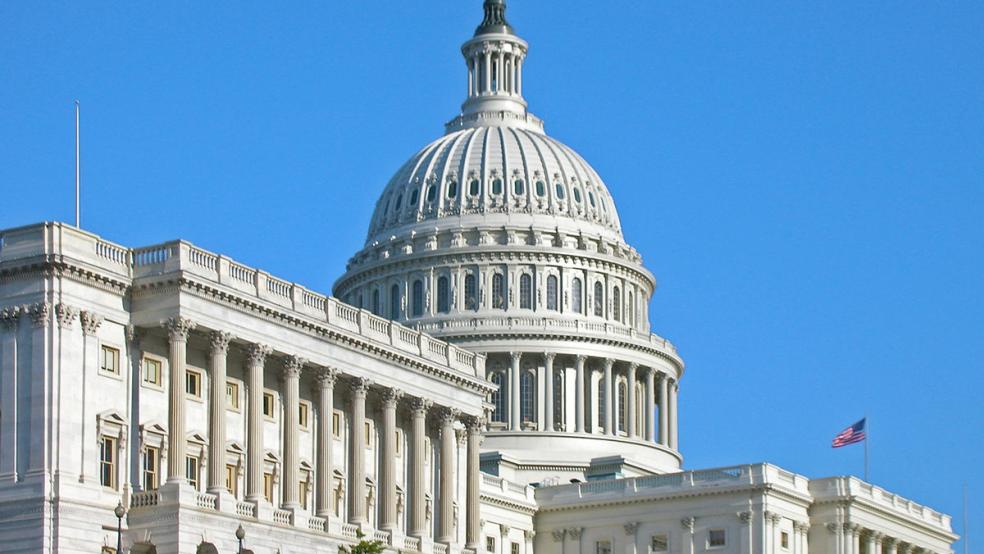A new interpretation of an old law may allow Republicans to wipe out decades of federal regulations.
Congressional Republicans have been eager to dismantle many of former president Barack Obama’s regulations as they possibly can and have signaled that they are interested in using the decades-old Congressional Review Act, a relic of the Newt Gingrich-era Contract with America, to do it. However, a new interpretation making the rounds in conservative circles argues that the CRA’s reach could, in theory at least, be much longer than is commonly believed.
The bill requires federal regulators to submit a report to Congress every time a new rule, new regulation, or regulatory guidance is issued. The Congress then has 60 legislative days to review it. If they take no action, the new rules take effect. However, if they don’t, both houses can pass a joint resolution that does away with it. That resolution is protected from a filibuster by an expedited process in the Senate that automatically limits debate to 10 hours, and can be triggered by as few as 30 senators.
Related: Obamacare Hits Record Popularity as Trump Takes First Steps to Repeal It
If the bill is passed, it requires a presidential signature, which is why the CRA was rarely invoked by Republicans during the Obama administration. But with President Trump in the Oval Office, the game has changed, and the GOP sees the opportunity to begin actively rolling back everything from environmental regulations put out by the Environmental Protection Agency to restrictions on certain financial services firms applied by the Treasury Department and the Consumer Financial Protection Bureau.
However, writing in the Wall Street Journal today, Potomac Watch columnist Kimberley A. Strassel reports that some influential figures in the GOP believe that the law can help them reach much farther back than just 60 legislative days.
Strassel interviewed attorney Ted Gaziano, a former Capitol Hill staffer who was closely involved in drafting the CRA. Gaziano, now with the conservative Pacific Legal Foundation, points out that the plain language of the law says that the 60-day clock doesn’t start ticking until the rule has been published in the Federal Register and Congress has received the report from the agency issuing it.
The opportunity for the GOP, Gaziano claims, is that in many, many cases, federal agencies failed to provide Congress with the required reports, which means that under the CRA, there are potentially federal laws going back to 1996, that can still be nullified by Congress under the law’s expedited procedures.
Related: Trump Cracks Down on Sanctuary Cities – and It Could Cost Them Billions
If he’s correct, Congressional Republicans could have a field day overturning rules they see as overly burdensome or that represent government overreach.
And if they are successful, it wouldn’t be a simple matter for a new Democratic administration to just reinstate them. The CRA’s language on that subject is unambiguous saying that a rule overturned under the law “may not be reissued in substantially the same form, and a new rule that is substantially the same as such a rule may not be issued, unless the reissued or new rule is specifically authorized by a law enacted after the date of the joint resolution disapproving the original rule.”
That means it would take not just a Democrat in the White House, but a Democratically controlled House and a filibuster-proof Democratic majority in the Senate to reactivate rules killed by CRA review.
So far, Republican leaders have not publicly discussed the possibility of pushing the envelope with regard to which rules are subject to CRA review. However, early this week, House Majority Leader Kevin McCarthy (R-Calif.) said that plans were already in place to begin using the law to eliminate more recent regulations.
Related: Environmentalists’ Worst Fears About Trump Are Coming True
“In the weeks to come, the House and Senate will use the Congressional Review Act to repeal as many job-killing and ill-conceived regulations as possible,” he wrote in an op-ed. “That’s how to protect American workers and businesses, defend the Constitution, and turn words into actions.”
Among the early targets, he said, will be several environmental rules issued by the Obama administration addressing clean water and clean air, and a bill meant to facilitate background checks for gun purchases.





